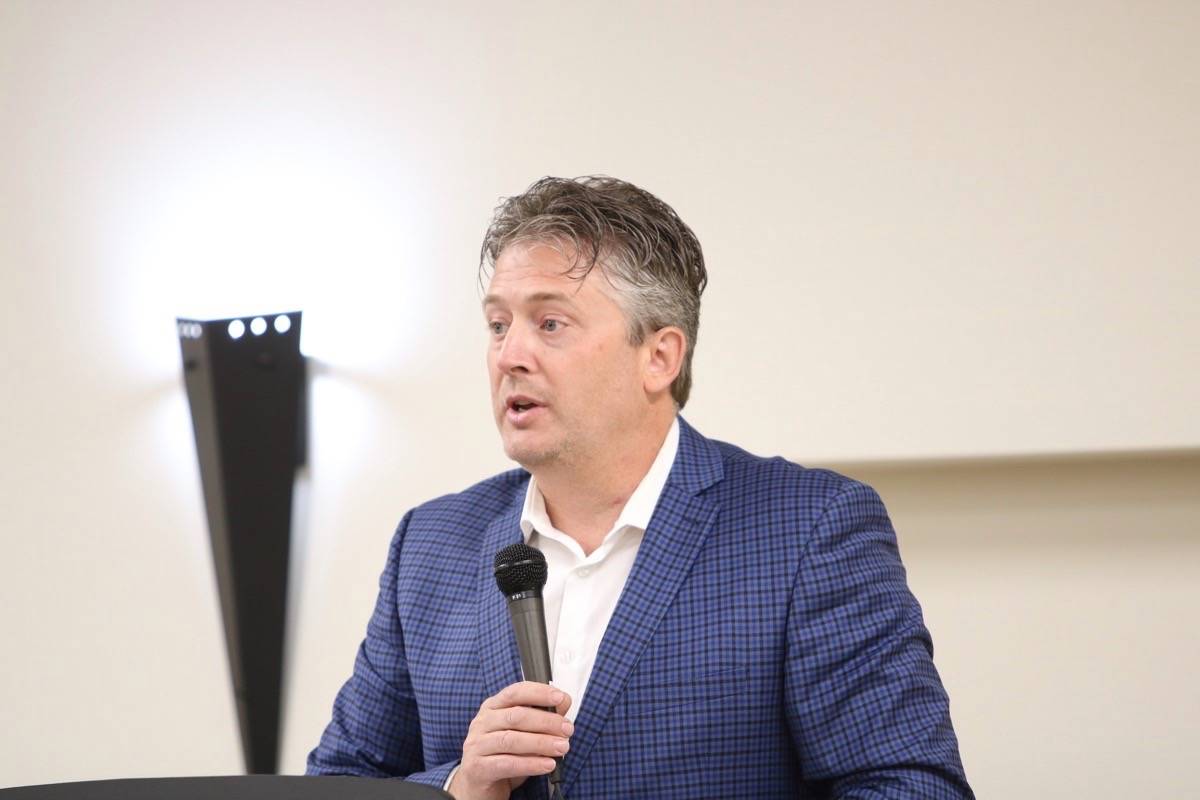Conservative Member of Parliament Blaine Calkins held a panel discussion Wednesday night regarding the Trudeau Government’s proposed tax laws which affect farmers, small businesses, and professionals.
A full house attended the Town Hall Meeting in Blackfalds to hear a panel which included Director of Canadian Tax Advisory for Moody’s Gartner Kim Moody.
Moody pointed out the importance of Canadians educating themselves thoroughly regarding this legislation.
“It is critically important,” he said. “These are not changes that are attacking the wealthy – they are attacking pretty much everyone. They are not tweaks or minor fixes; these are tax policy changes that affect everyone who is an entrepreneur. It is important to educate people, rather than trying to slide it through under the rhetoric of attacking the wealthy.”
The political rhetoric, according to Moody, is misleading Canadians regarding this law which he said affects all Canadians including low-income Canadians and not just the wealthy as the Trudeau Government has suggested.
“Every single proposal they are talking about has an impact on the small, medium and the very wealthy entrepreneur,” Moody said. “A single example is a small business that is sprinkling 30,000 dividends in a mom and pop shop. If one of the spouses is inactive and doesn’t pass the reasonableness test – they will be impacted by a huge tax increase. That is not fair.”
The reasonable test in this example is whether a spouse or family member meets the criteria of previous labour, company influence, and previous returns.
Moody outlined much of the complicated tax reforms and tried to speculate on the intent of the Liberal Government in their implementation.
“It certainly will do what they want to do but the question is what do they want to do?” he said. “I suspect they want to prevent so-called income sprinkling with family members. They took a sledgehammer to that one.
“They want to prevent, what is known in our industry, corporate surplus stripping – which is taking money out at capital gains rates as opposed to dividends rates. They have done that but it is in such a broad fashion. It is like killing a mouse with an elephant gun.
“The last one is they want to prevent people from accumulating assets for retirement using the lower corporate tax rate. I’m not sure I agree with that one because I don’t find anything personally offensive about that. Most entrepreneurs have social safety nets and they need some cash. I have a hard time with that one understanding what the mischief is.”
Calkins, after listening to many Central Albertans who voiced their concern, said that his objective is clear.
“When we have accountants saying there are people moving billions of dollars out of the country to avoid tax changes and have a better competitive environment for their businesses – this is something Canadians should be worried about,” Calkins said. “We are all better off if we are all wealthier. Wealth generation and wealth creation are great because it helps us pay for all the social programs and services we all want.”
Calkins said these tax reforms hit close to home in his constituency.
“These are things that are a concern for me – the ability for people to hand their farms down to their children; the ability for business people to make payroll and stay competitive nationally and internationally and the ability for doctors to still think of Canada as a great place to start their practices after they are done their education. These are important things.”
Calkins and Moody both expressed hope that changes can be implemented to these reforms.
“It has now come down to political pressure and it is my job to try and talk reasonably and sensibly to my Liberal colleagues and Ottawa. I know a lot of them are feeling the heat and some of them are publicly disagreeing with their government right now. It is our job as politicians, farmers, and businessmen to convince enough Liberal MPs to retreat from these proposed changes until we have had a lot more time to study the long term impacts of what could be happening should the laws change.”
Moody added, “The Department of Finance people are good folks in the grand scheme of things. They don’t get married to their errors, so the question we need to ask as a tax community is what are their errors? If there are unintended consequences or errors, I’m very confident they will fix that.”
Calkins added, “I’m really proud of the community for coming out tonight. I wish it was under better circumstances, but any politician that wants to raise taxes should take note of the attendance here tonight.”



